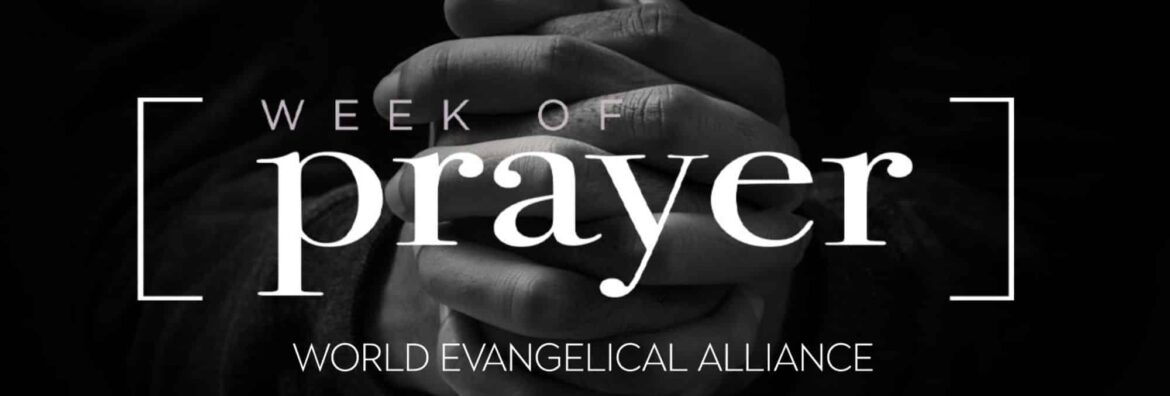The concept of prayer occupies a pivotal role in the Christian faith, serving as a direct line of communication between believers and the divine. This week, the global Christian community is called to a profound act of intercession, focusing on the pressing issues of peace and justice worldwide. Amidst the tumult of worldly affairs, one might ponder: how often do we genuinely devote ourselves to the art of supplication, not just for our own needs but also for those of others? As we delve into this topic, it is crucial to recognize both the power of our prayers and the daunting challenges that accompany them.
Throughout history, Christians have embraced prayer as a transformative practice, one that extends beyond personal wishes to encompass the cries of the oppressed and the brokenhearted in society. Intercession emerges as a core component of a believer’s spiritual journey, encouraging us to extend our compassion beyond boundaries—geographical, political, or cultural. The urgency of this week’s focus on prayer for peace and justice is underscored by the chaotic conditions evident in various corners of our world today.
Consider the biblical foundation for intercessory prayer. Figures such as Moses, Abraham, and Job exemplified the profound impact of standing in the gap before God on behalf of others. In Exodus 32:11-14, we see Moses earnestly pleading with God to spare the Israelites despite their transgressions. This narrative resonates powerfully today as we confront situations where communities are marred by injustice and despair. Can we, too, advocate fervently for those who are suffering—be they victims of war, refugees, or marginalized groups?
In the current global landscape, the plight of millions continues to be dire. Conflict zones around the world showcase the urgency for our prayers. Nations such as Syria, which has endured years of devastation and strife, necessitate our intercessory focus. How can we pray without action? The challenge lies not only in the act of praying but also in how these prayers translate into tangible acts of love and justice. The Christian narrative compels us to respond not merely with words but with deeds that uplift and empower.
Prayer for peace transcends the mere asking for calm in chaotic times. It encompasses a holistic view—praying for the restoration of relationships among nations, the healing of communities torn apart by violence, and the courage for individuals to champion righteousness. Justice in Scripture resonates with God’s character. It calls believers to advocate for truth and righteousness, demanding concerted efforts to address systemic injustices found in political and economic structures. Isaiah’s proclamation, urging believers to “seek justice, encourage the oppressed” (Isaiah 1:17), acts as a clarion call for the Church today. Are we willing to engage with both the spiritual and the practical dimensions of justice?
As Christians gather to pray in unison, it is essential to introspect: what biases may obstruct our prayers? How do our backgrounds and experiences shape the way we intercede for others? This week poses a challenge to step beyond comfortable prayers that echo our immediate circles. To intercede genuinely, we must engage with the stories of those different from us, learning to empathize and understand their suffering. Diving into the narratives of strangers broadens our perspective and enriches our prayer life.
The challenge of intercessory prayer extends to the toll it takes on our hearts and spirits. To weep with those who weep (Romans 12:15) requires a raw willingness to embrace uncomfortable emotions. It requires an acknowledgment of one’s privilege and a heartfelt commitment to support those in despair. This leads to a fundamental question for the faithful: how are we prepared to align our hearts with the heart of God, who cares deeply for the marginalized and the oppressor alike?
This week’s focus invites Christians to cultivate a posture of humility. We are reminded that prayer is not merely a ritual but a dynamic engagement with the life-altering power of God. As we pray for the restoration of peace in strife-torn regions, we must also wrestle with the reality of our own complicity in systems that perpetuate injustice. The call to pray boldly is a call to act justly, requiring us to hold our governments accountable, support humanitarian efforts, and advocate for vulnerable populations.
Intercession, therefore, becomes a multifaceted endeavor. It requires both fervent heartfelt prayers and a faithful commitment to action. While prayer can change situations, it is often in the cooperation with God’s will that believers find true meaning. This week, let every uplifted voice and humble heart be a vessel for divine love and justice. What will sustain us through our intercessions for peace is the foundational belief that God hears our cries and intertwines them with His grand narrative of restoration.
Ultimately, the world in prayer this week serves as a reminder of our collective responsibility. It beckons us to rise to the occasion and to not only pray for peace and justice in a fragmented world but also to embody these values in our everyday lives. The challenge remains daunting, but the call is clear: let us continue to intercede earnestly, believing that our prayers, paired with righteous actions, can indeed alter the course of lives and nations.



